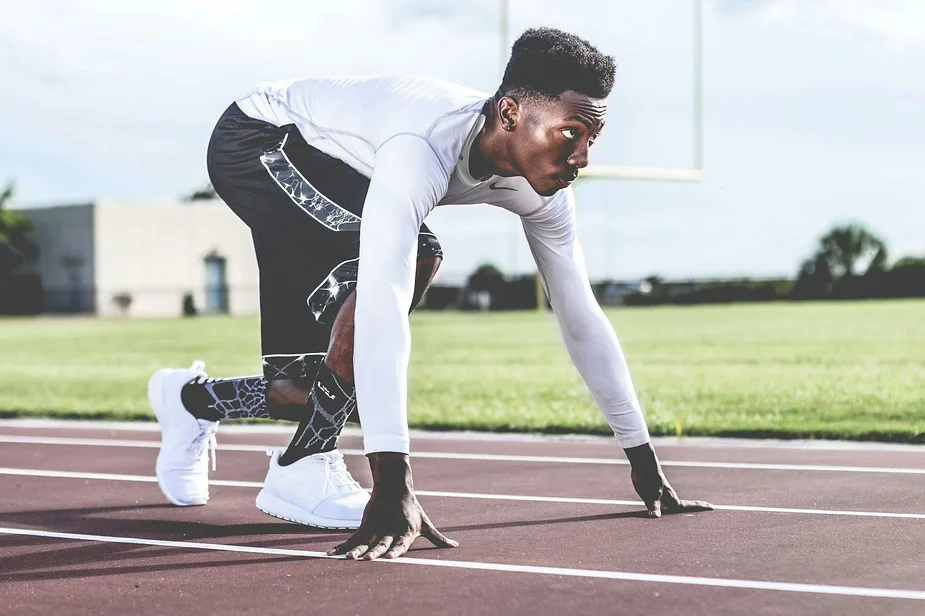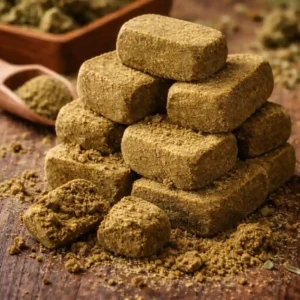Cannabis has emerged as a topic of growing interest in the world of sports, sparking debates about its potential impact on athletic performance and muscle recovery. As attitudes toward cannabis evolve and its potential therapeutic benefits are investigated, athletes, coaches, and health professionals seek to better understand how this ancient plant may influence the sporting arena.
The complexity of cannabinoids
Cannabis contains a variety of chemical compounds called cannabinoids, with tetrahydrocannabinol (THC) and cannabidiol (CBD) being the most studied and recognized. These compounds interact with the body’s endocannabinoid system, which plays a key role in regulating a variety of physiological functions, including pain perception, inflammation, mood, and sleep.
Potential Benefits and Risks of Cannabis Effects on Athletic Performance
Athletes have reported a variety of experiences with cannabis in relation to athletic performance. Some claim it helps them relax, reduce anxiety, and enhance mental focus during competition. Others suggest that cannabis may have negative effects on motor coordination, reaction time, and concentration, which could compromise athletic performance, especially in sports requiring high precision and fine motor skills.
However, athletes’ interest in cannabis also focuses on its potential benefits for muscle recovery and pain management. It has been suggested that CBD, in particular, may have anti-inflammatory and analgesic properties, which could be useful for reducing inflammation and muscle pain after intense training.
Advances in research
Research in the field of cannabis in sports is an emerging area receiving increasing attention from the scientific community. Despite divergent opinions and lack of consensus on its use in sports, scientific research is constantly advancing with the aim of shedding light on the effects of cannabis on athletic performance and muscle recovery.
Rigorous studies are being conducted to explore in-depth how cannabinoids present in cannabis interact with the human body. The mechanisms of action of compounds like THC and CBD are being examined, as well as their influence on various physiological and biomechanical aspects relevant to athletes.
Furthermore, research is investigating the potential short and long-term effects of cannabis consumption on athletic performance and athletes’ health. This includes studies on its impact on physical capacity, exercise response, muscle recovery, as well as the prevention and treatment of sports injuries.
The ultimate goal of this research is to provide solid scientific evidence that enables athletes, coaches, and healthcare professionals to make informed decisions about the use of cannabis in sports. As scientific knowledge advances, it is expected that the role of cannabis in the sporting context will be clarified, and potential therapeutic applications that may benefit athletes in their pursuit of better performance and well-being will be identified.
Although research on the effects of cannabis on athletic performance is limited and often contradictory, increasingly rigorous studies are being conducted to better understand how cannabinoids interact with the human body and their potential impact on health and athletic performance.
Considerations for athletes
Athletes should consider several important factors before contemplating the use of cannabis. Firstly, the legality and regulations surrounding cannabis vary by location, and athletes should familiarize themselves with local laws and anti-doping policies of their sports organizations before considering its use.
Additionally, athletes should consider the potential side effects of cannabis, which may include changes in mood, drowsiness, and loss of coordination. These effects can negatively impact athletic performance and safety during competition.
It is important for athletes to consult with medical professionals and cannabis specialists before using it, especially if they are considering the use of products containing THC, which can have significant psychoactive and legal effects.
Legal and Ethical Considerations
It is crucial for athletes to consider the legal and ethical implications related to the use of cannabis in the sporting context. Regulations regarding cannabis can vary significantly depending on the geographical location and the sports organization to which athletes belong, making it essential for them to be aware of current laws and policies.
The use of cannabis in sports may be subject to anti-doping restrictions, meaning that its consumption could result in negative consequences for athletes’ sporting careers, including disqualification from competitions, suspensions, and other disciplinary punishments.
Therefore, it is essential for athletes to familiarize themselves with the anti-doping policies of their sports organizations and ensure compliance at all times.
In addition to legal considerations, it is also important to take into account the ethical implications of cannabis use in sports. This includes reflecting on athletes’ personal and professional values, as well as the impact their behavior may have on the integrity and reputation of sports in general. Athletes should carefully weigh these ethical aspects before making any decisions related to cannabis use in the sporting realm.
Ultimately, to ensure safe and ethical sports practice, it is strongly recommended that athletes consult with medical professionals before considering the use of cannabis. These professionals can provide personalized guidance, assessing potential risks and benefits based on each athlete’s individual situation, and help them make informed and responsible decisions regarding cannabis in sports.
Education and Informed Decision Making
Given the complexity and implications of cannabis use in sports, it is essential for athletes to empower themselves through education and make informed decisions. This involves a meticulous process of evaluating the potential benefits and risks associated with cannabis consumption in the sporting context.
To achieve this, it is crucial for athletes to seek reliable and up-to-date information on the subject, consulting scientific, medical, and sports sources. This may include reviewing research studies, seeking guidance from medical professionals, and accessing educational resources provided by sports organizations and health authorities.
Additionally, athletes are strongly encouraged to discuss their concerns and goals with medical professionals specialized in the use of cannabis in sports. These professionals can provide personalized guidance, assessing each athlete’s individual situation and providing recommendations based on scientific and medical evidence.
Furthermore, athletes should consider local and sports-related regulations regarding cannabis use. This involves familiarizing themselves with the laws and anti-doping policies in their country and respective sports organizations, to avoid potential legal and sporting consequences arising from the use of this substance.
Ultimately, education and informed decision-making are essential for athletes to responsibly manage their health and sporting careers. By being well-informed and considering all relevant aspects, athletes can make decisions that reflect their values, goals, and individual needs regarding the use of cannabis in sports.
Impact on Mental and Emotional State
Cannabis, known for its ability to influence mental and emotional states, has sparked growing interest in its potential impact on athletes. It has been suggested that cannabis consumption may offer relief from stress and anxiety, providing a state of calmness and relaxation that could be especially beneficial for athletes facing intense competitive pressures. In a sporting environment where competition is fierce and physical and mental demands are extreme, some athletes turn to cannabis as a way to manage stress and improve their psychological well-being.
However, it is important to consider that excessive or inappropriate use of cannabis can have negative consequences on athletes’ mental health. While it may initially provide temporary relief, excessive cannabis consumption can lead to dependence and the development of mental health problems, including exacerbation of anxiety and depression disorders. Additionally, cannabis consumption in situations of extreme stress can impair judgment and decision-making, which could have negative implications for athletic performance and athlete safety.
Therefore, while cannabis may offer certain benefits in terms of stress management and improvement of psychological well-being, it is crucial for athletes to be aware of the potential risks associated with its use. A balanced understanding of the effects of cannabis on mental and emotional health, combined with responsible consumption practices, is essential to ensure that athletes can harness its potential benefits without compromising their health and athletic performance.
Preventing Cannabis Abuse in the Sports World
Preventing cannabis abuse in the sports world is crucial to ensuring the health and well-being of athletes, as well as the integrity of the sport in general. To address this challenge, it is necessary to implement effective prevention strategies and measures that help athletes make informed and responsible decisions about cannabis use. Some of these strategies could include:
Education and Awareness: It is essential to provide education about the risks associated with excessive or inappropriate cannabis consumption. This includes informing athletes about the short and long-term effects of cannabis on physical, mental, and emotional health, as well as the potential negative impacts on athletic performance and athletic career.
Promotion of Safe Consumption Practices: Responsible cannabis consumption practices should be promoted, including moderation in the quantity and frequency of consumption, as well as understanding the effects of cannabis on the body and mind. Athletes should be encouraged to avoid excessive or compulsive cannabis consumption and to respect legal and sports-related limits regarding its use.
Early Identification and Support: Establishing mechanisms to identify and support athletes who may be experiencing issues related to cannabis abuse is important. This may include implementing screening and assessment programs, as well as providing support resources such as psychological counseling, rehabilitation programs, and support groups for those in need of assistance.
Active Involvement of Coaches and Sports Staff: Coaches, sports staff, and other members of the support team play a crucial role in preventing cannabis abuse in the sports world. They should be trained to recognize signs of cannabis abuse and provide appropriate guidance and support to athletes who may be at risk.
Promotion of a Healthy Sports Environment: Promoting a healthy and supportive sports environment can help prevent cannabis abuse among athletes. This includes fostering a culture of physical and emotional well-being, as well as creating an environment where athletes feel safe and comfortable to discuss any issues related to cannabis consumption without fear of stigma or reprisal.
In summary, preventing cannabis abuse in the sports world requires a holistic and collaborative approach involving athletes, coaches, sports staff, sports authorities, and healthcare professionals. By implementing effective prevention measures and providing necessary support, we can work together to promote responsible cannabis use and ensure the health and well-being of athletes in the sports world.
Conclusion
While cannabis may have certain effects on athletic performance and muscle recovery, it is crucial for athletes to carefully consider the potential benefits and risks before its use, and seek professional guidance when necessary. As research continues and our understanding of cannabis and its impact on health and athletic performance expands, athletes can make informed decisions about its use in their pursuit of enhancing their well-being and athletic excellence.




